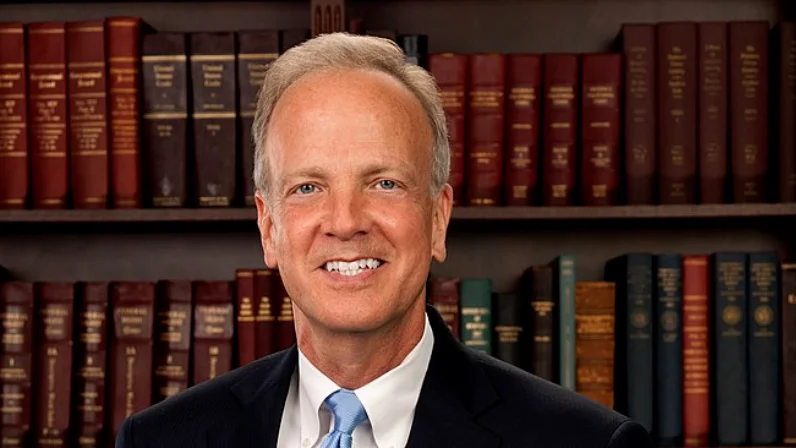Sen. Jerry Moran, US Senator for Kansas | Official U.S. Senate headshot
Sen. Jerry Moran, US Senator for Kansas | Official U.S. Senate headshot
Millions of Americans provide unpaid care for military veterans, often managing medical needs and daily activities. According to Sen. Jerry Moran and Steve Schwab, these caregivers deliver an estimated $400 billion in unpaid services annually, which helps reduce costs that might otherwise fall on taxpayers.
Many caregivers face significant financial challenges as their responsibilities can force them to leave the workforce, lose professional licenses, and miss out on retirement savings. The bipartisan Veteran Caregiver Reeducation, Reemployment, and Retirement Act is being considered in Congress to address these issues. The proposed legislation would require the Department of Veterans Affairs to reimburse certain professional certification fees for caregivers, give them access to federal employment assistance programs, extend health coverage and bereavement counseling, and consider creating a retirement savings plan for caregivers.
One-third of families caring for veterans live at or below the poverty line. Food insecurity affects 40 percent of those caring for veterans under age 60, many of whom are post-9/11 combat veterans. Two-thirds report difficulty paying bills.
A program established by Congress in 2012 provides monthly stipends to caregivers of veterans with complex needs through the Department of Veterans Affairs. However, these stipends do not count as earned income for Social Security or retirement plans and end soon after caregiving ends—often following the veteran’s death—leaving former caregivers without a financial safety net.
Andrea Sawyer, advocacy director at the Quality Life Foundation and former caregiver, highlighted gaps in support. She said she left her teaching career to care for her husband, an Army veteran with PTSD and a traumatic brain injury: “When Sawyer left caregiving in 2021, it would have cost thousands of dollars to renew these licenses if she chose to return to the classroom. At age 48, she had lost 15 years of earning retirement, making contributions to her private retirement account, contributing to Social Security, and her senior leadership and salary status that come with remaining in the workforce during that time.”
Shawn Lopez experienced similar challenges when he cared for his father after a stroke related to military toxic exposure: “For six years, Lopez did it all — monitored his dad’s vitals, responded to his bed alarm in the middle of the night, and managed hospital visits. When his father passed away this spring...a family member launched a fundraising page for Lopez...it would take Lopez time to reenter the workforce.”
Moran and Schwab stated: “We cannot ask caregivers to dedicate their lives to this service...only to turn our backs on them when they need support the most. The Veteran Caregiver Reeducation, Reemployment, and Retirement Act will help correct these issues by providing essential reforms and support to better meet caregivers’ needs.”
They concluded by urging prompt passage of the legislation: “Considering the sacrifices that military and veteran caregivers have made for those who have served, we must not wait to act and pass this critical legislation.”
Jerry Moran is chairman of the U.S. Senate Committee on Veterans’ Affairs; Steve Schwab is CEO of the Elizabeth Dole Foundation.





 Alerts Sign-up
Alerts Sign-up